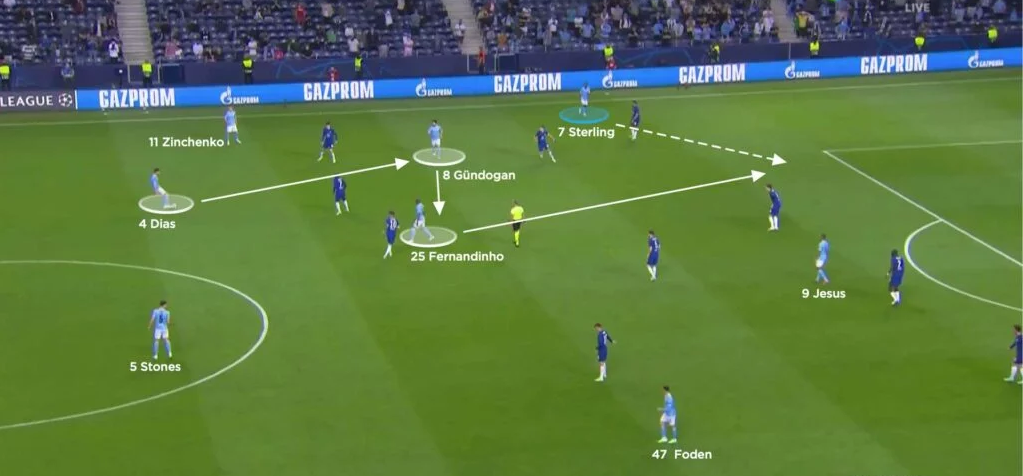Can you develop soccer intelligence?
I was recently delivering on a UEFA B coaching course and this was a question that was asked me by one of the candidates.
My answer was yes but then it got me thinking as to how it could be broken down to be developed.
Introduction
Soccer is a sport that requires a combination of physical ability and intelligence to excel.
While players may have exceptional technical skills, those with a high soccer IQ have a better understanding of the game, make better decisions on the field, and are generally more effective in their play.
Hence, developing soccer Intelligence should be essential to any soccer player’s development.
As a coach, it is crucial to take responsibility for teaching game awareness to players. By providing players with the tools and knowledge to read the game effectively, coaches can help them become more successful and confident on the field.
In this article, we will discuss some effective strategies for enhancing game awareness in soccer players.
These strategies include using video analysis to review game footage, practising situational awareness drills, emphasising communication and teamwork, and promoting a growth mindset.
By implementing these techniques, coaches can help players improve their soccer IQ and overall performance on the field.
Game Analysis

To develop soccer IQ, the first and foremost step is to conduct game analysis. It is important for players to understand the tactical aspects of the game, such as formations, strategies, and game plans.
A coach plays a crucial role in this process, as they must analyse the game with the players and demonstrate how to recognise the patterns of the game.
They can also use game footage and other resources to help players identify their mistakes and learn from them.
Moreover, game analysis allows players to identify the strengths and weaknesses of their opponents. It enables them to understand the most effective tactics to use against different opponents.
This skill is essential in high-level soccer, where the difference between success and failure can be as small as a split second.
Players must be able to adapt their game plan to the situation and remain flexible throughout the game.
Furthermore, game analysis can help players to develop their soccer IQ by increasing their awareness and understanding of the game.
By analysing different games, players can learn from the strategies and tactics of other teams and players. They can also identify trends and patterns in the game, which can give them a competitive edge.
In summary, game analysis is an integral part of developing soccer IQ.
It helps players to understand the tactical aspects of the game, identify opponents’ strengths and weaknesses, and adjust their game plan accordingly.
With regular game analysis, players can enhance their soccer IQ and stay ahead of the competition.
Game Intelligence
Game intelligence refers to a player’s capability to make sound and prompt decisions on the field, which can significantly impact the game’s outcome.
It is a skill that requires the ability to perceive and comprehend the game’s dynamics and quickly analyse the situation to make the most beneficial decision.
While some players may naturally have higher game intelligence, it is primarily a skill that players can acquire through experience and deliberate practice.
To develop game intelligence, coaches can provide players with decision-making scenarios during training sessions.
These scenarios can include drills that simulate real-game situations, forcing players to make quick decisions under pressure.
For instance, coaches can create situations where players must decide whether to pass, dribble, or shoot the ball. By practising these scenarios regularly, players can improve their decision-making skills and become more adept at making the right choices on the field.
Another effective way to develop game intelligence is through small-sided games such as 3v3 or 4v4 games.
These games involve fewer players on the field, which creates a more dynamic and fluid environment, requiring players to constantly make quick decisions.
Small-sided games provide players with ample opportunities to develop their tactical knowledge and apply their skills in a competitive setting.
Overall, developing game intelligence is a critical aspect of becoming a successful soccer player.
It requires a combination of experience, deliberate practice, and coaching to improve decision-making skills and become a valuable asset to any team.
Positional Play

In soccer, developing strong positional play is crucial for players to enhance their soccer IQ.
This involves understanding their designated roles and responsibilities on the field, which helps players to execute specific skills and apply them effectively during the game.
To develop the positional play, coaches play a vital role in guiding players by teaching them the significance of position-specific skills and how to apply them on the field.
This includes educating players on the importance of teamwork and how their individual contributions can influence the team’s overall success.
A coach should also provide insights into how each player’s role fits into the team’s overall strategy, thereby creating a more cohesive and coordinated unit.
Playing in a particular position teaches players how to play as a unit both defensively and offensively.
Defensively, players learn how to coordinate and work together to protect the goal while attacking, players learn how to move in unison to create opportunities and score goals.
By adopting a team-first mindset and understanding their roles and responsibilities on the field, players can build a strong foundation for their positional play and achieve success as a team.
Reading the Game
Developing soccer Intelligence involves various critical aspects, and one of them is reading the game. This skill requires players to understand the game’s flow and anticipate what is likely to happen next.
To achieve this, players must stay aware of their teammates’ and opponents’ positions on the field.
Coaches play a crucial role in helping players improve their ability to read the game. They can create training situations where players are required to anticipate the next move and make quick decisions based on their observations.
Another effective technique that coaches can use is to analyse game footage with the team and point out the patterns and strategies used by the opponents.
Being able to read the game also means that players must be able to identify and respond to potential dangers on the field.
Players need to have the ability to recognise warning signs and take quick action to prevent the opposing team from scoring.
By developing their soccer IQ, players can improve their overall performance on the field and increase their chances of success.
Communication
In soccer, effective communication plays a pivotal role in enhancing a player’s soccer Intelligence. It is essential for players to communicate with their teammates to make quick and accurate decisions on the field.
Effective communication also helps in avoiding misunderstandings that may lead to costly errors and goals for the opposing team. Read my article on Why Effective Communication is the Ultimate Skill in Football here
To promote good communication among players, the coach must actively participate in training sessions. One way to achieve this is by creating scenarios that require players to communicate effectively with each other.
For example, the coach can set up practices that demand players to call out specific instructions, to their teammates either before, during or after they receive the ball otherwise it is a free-kick to the opposition.
Additionally, the coach can use game footage to illustrate how effective communication can benefit the team.
By analysing game footage, players can see how good communication can lead to better teamwork, more scoring opportunities, and improved defence.
Overall, soccer is a team sport, and effective communication is the key to success. The coach’s role in encouraging and promoting good communication among players is crucial in enhancing the team’s performance.
Physical and Mental Conditioning

Developing soccer IQ requires both physical and mental conditioning. Players need to be in excellent physical shape to perform at a high level.
They must also possess the mental fortitude to handle the stress of competition.
To help players achieve this level of fitness, coaches need to create training programs that prioritize both physical and mental conditioning.
These programs should focus on building strength, agility, endurance, and speed. Additionally, the training should include mental training techniques, such as visualisation and positive self-talk.
Mental toughness is vital in soccer, as players face high-pressure situations during games. Coaches need to equip players with tools to handle the pressure and remain focused. Read my article on How to Increase Mental Toughness here
Mental training can help players develop strategies to manage their emotions and stay calm under pressure.
Visualisation techniques can help players imagine themselves succeeding in challenging scenarios, while positive self-talk can help them stay motivated and confident.
By prioritising both physical and mental conditioning, coaches can help players develop the skills they need to succeed on the field.
Conclusion
Developing soccer Intelligence is a crucial element of a soccer player’s overall growth and development. A player’s ability to make smart and quick decisions on the field is directly related to their soccer IQ.
Coaches play a significant role in this development process, and they must provide players with the necessary tools to succeed on the field.
In addition to teaching game awareness, coaches should also focus on analysing games, developing game intelligence, improving positional play, enhancing reading-the-game skills, fostering communication, and maintaining physical and mental conditioning.
These strategies are all essential in helping players to develop their soccer IQ.
However, coaches must also create a culture of learning and growth to promote continuous improvement. Players must be receptive to learning and willing to put in the hard work to enhance their game.
Coaches must provide constructive feedback, encourage players to learn from their mistakes and provide an environment conducive to learning.
Ultimately, developing soccer Intelligence is a continuous process that requires consistent practice, dedication, and a willingness to learn.
With the right guidance and support from coaches, players can improve their soccer IQ and become successful on the field.


